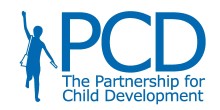 News
News  New Rwandan Home Grown School Feeding Programme in the Pipeline
New Rwandan Home Grown School Feeding Programme in the Pipeline
A Brazilian delegation to Rwanda, supported by the World Food Programme (WFP), is in consultations with various Rwandan government institutions on how to develop a Home Grown School Feeding programme as a way of combating hunger and promoting learning in schools.
Last week, WFP stated that the process is expected to be modelled around Brazil's WFP Centre of Excellence against Hunger, and follows on from the initial visit to Brazil by Rwanda’s inter-ministerial team, in April 2012, who had travelled there for a preliminary study tour.
"To facilitate this, a modelling workshop is planned in September 2012 to ensure a common understanding of school feeding across ministries and sectors, develop a vision and objectives for a nationally owned school feeding programme, and define the programme model that the Government of Rwanda sees as appropriate to scaling up a nationally owned programme," the WFP statement states.
"In addition to the educational and nutrition benefits of school feeding, the home grown school feeding can contribute to the agriculture sector development, poverty reduction, and country's economic development,” Abdoulaye Balde, WFP Rwanda Country Director, said.
"The Government of Rwanda has stated its desire to develop a nationally owned home-grown school feeding programme with a high degree of community ownership and gradually reduce its current reliance on external support," WFP added.
According to WFP, the programme will develop a linkage to Rwanda's One Cup of Milk per Child programme, the Girinka project, as well as other initiatives aimed at improving school health and nutrition.
Read the original article adapted from All Africa, Rwanda: New Home Grown School Feeding in Pipeline
Read more about the One Cup of Milk per Child Programme



